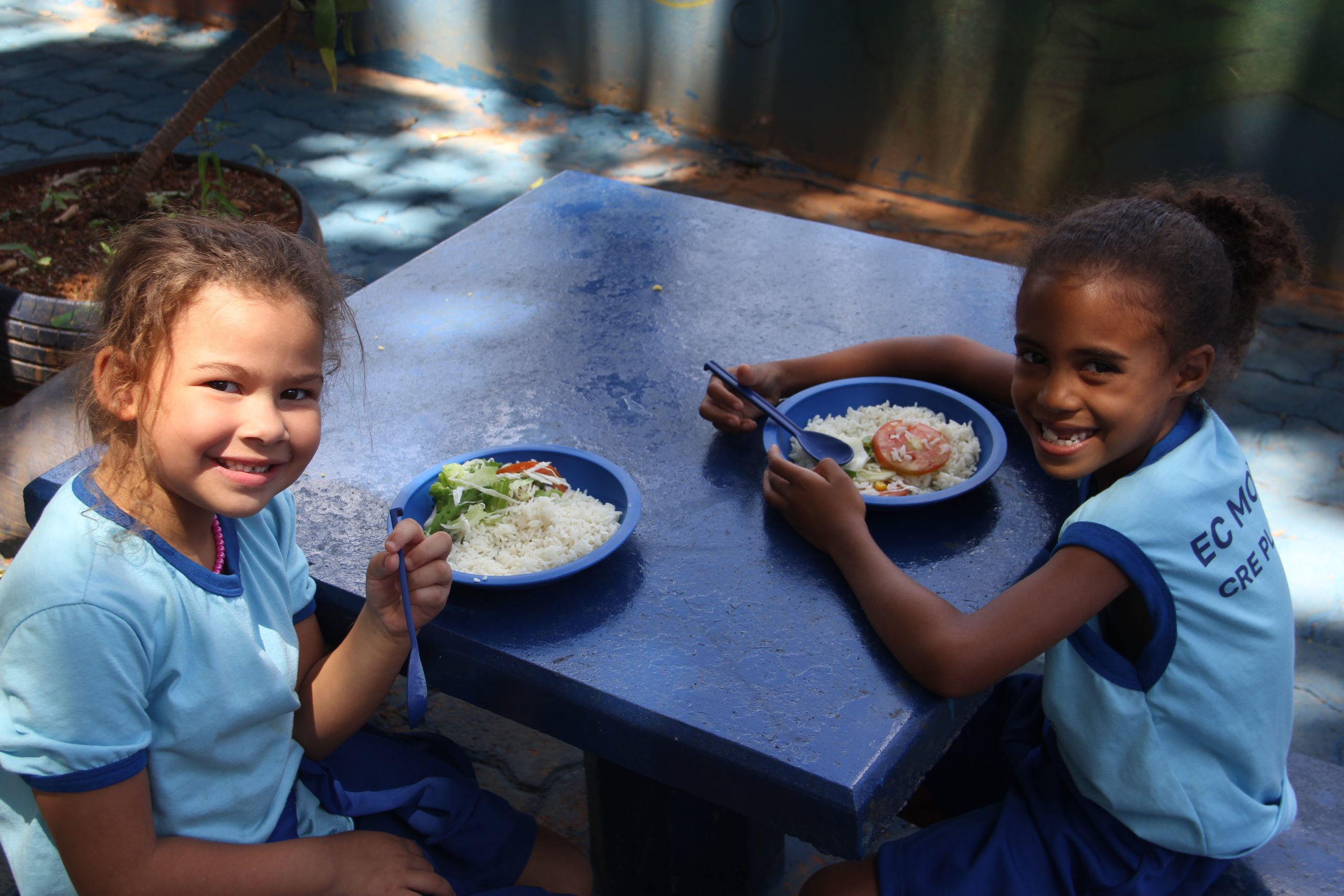
On September 18 and 19, the city of Fortaleza will host the 2nd Global Summit of the School Meals Coalition, the largest international meeting dedicated to advancing school meal programs worldwide. This high-level event will bring together ministers, governments leaders and partners from across the globe to discuss and commit to expanding and improving school meal initiatives.
The summit is hosted by the Brazilian Government, through the Ministry of Education (MEC) and the National Fund for Education Development (FNDE). This is in partnership with the Coalition Secretariat, hosted by the United Nations World Food Programme (WFP).
The School Meals Coalition currently brings together over a hundred countries and international partners around the shared goal of ensuring access to healthy and nutritious meals for all children and young people during their school years. Created in 2021, the Coalition held its first global summit in 2023 in Paris, when Brazil assumed the co-presidency of the initiative, alongside France and Finland.
A global benchmark – The National School Feeding Program (PNAE), coordinated by FNDE, is one of the largest in the world. It currently provides daily meals to nearly 40 million students in 150,000 schools, totalling 50 million meals per day and an annual investment of R$ 5.5 billions. More than just meeting food needs, the program is a strategy to improve the quality of education, guided by MEC guidelines, strengthening learning, reducing school dropout rates, and promoting healthy habits among children and adolescents.
Brazil also stands out for its experience in international technical cooperation. Upon joining the Coalition, the country brought with it the success of its public policy, associated with the Sustainable School Feeding Network (RAES), which has been operating in Latin America and the Caribbean since 2018, supporting several countries in consolidating their school feeding policies, in partnership with the Food and Agriculture Organization of the United Nations (FAO). In addition, Brazil has established in 2011 the Centre of Excellence against Hunger, in collaboration with the World Food Programme (WFP), which now supports more than 80 countries globally in developing sustainable solutions to combat hunger and improve nutrition through school meals and other social protection strategies.
Under Brazil’s G20 Presidency, world leaders launched the Global Alliance Against Hunger and Poverty in November 2024. This Alliance acts as a “network of networks,” bringing together governments and partners to address hunger, poverty, and inequality through transformative public policies and social initiatives—one key example being school meals.
Since its launch, the Alliance has worked closely with WFP and in WFP’s role as Secretariat of the School Meals Coalition. Together, they support countries in developing national implementation plans that identify opportunities for technical assistance. These needs are then matched with expertise, capacity, and resources from partners, helping governments strengthen their school meal policies and programs. The PNAE is part of the Global Alliance Against Hunger and Poverty, reinforcing its relevance as a public policy.
In addition, Brazil has already supported more than 80 countries in strengthening school feeding programs through initiatives led by the Brazilian Cooperation Agency (ABC) and Ministry of Foreign Affairs (MRE), in partnership with the WFP Centre of Excellence against Hunger in Brazil and FAO.
Global advances and commitments – The 2nd Summit will highlight the progress made since the first global summit that took place in Paris in October 2023, with the launch of the flagship report “The State of School Feeding Worldwide,” and will serve as a platform to mobilize new actions toward the goal of reaching 150 million children worldwide. Topics such as sustainable financing, innovation in food systems, the role of cities, and international cooperation will also be discussed.
Fortaleza – The choice of the capital of Ceará as the venue for the Summit reinforces the leading role of Brazil and the Northeast region on the international stage. The event takes place at a time when the country is celebrating its removal from the Hunger Map, the result of consistent public policies to combat food insecurity and promote citizenship.




